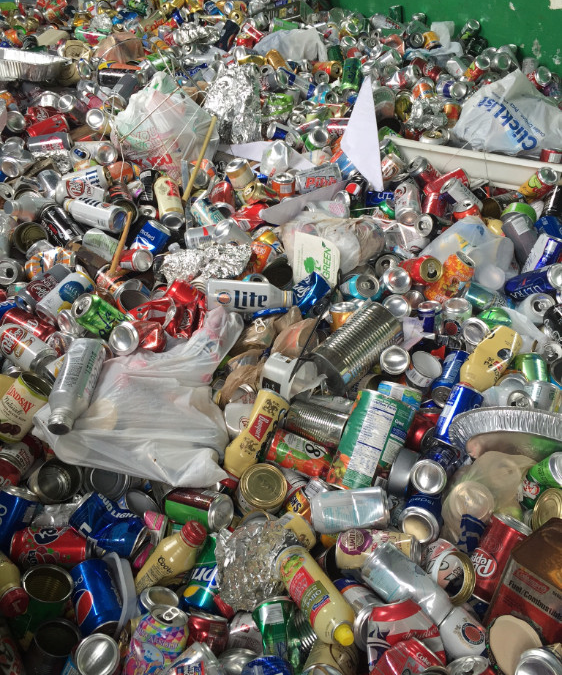By: Hal Opperman
Recently Keep Kingwood Green gave a program at the Kingwood Library entitled “Why Recycling Matters’. If you missed it, do go to our website and join our e-newsletter list. At info@keepkingwoodgreen.org and on our phone hot line, we continually get e-mails/calls from people who missed a recycling event. Don’t be that person. If you check our web site or get our e-newsletter, you will always be informed. www.keepkingwoodgreen.org. If you would like to see the presentation on” Why Recycling Matters” for your club or group, contact us on our web site.
The City of Houston is negotiating for a new contract for recycling services in the City. That does not affect most of us in the Lake Houston area directly, since most of us are not served by the City Solid Waste Department. We would love to see more recycling services in the City including the resumption of glass recycling. And, let’s face it, what happens in the City does eventually affect all of us whether we live in the City or the surrounding area. Mayor Turner had announced a new company would take over recycling the City’s materials but that proposal has not been approved by City Council. Now a lawsuit has been filed against the City alleging bid rigging and other problems. It appears it could be a long time before anything positive happens.
One of the biggest challenges in recycling is contamination. Everyone knows that once they put something in one of the school bins, in the weekend recycling bins at the Metro lot, or in their curbside bins if they have that service, the stuff disappears. So if you accidently or intentionally put something into the bin that is not listed as allowable for that bin it is out of sight and out of mind on your end. Not so much when it gets to the recycling center.
At the urging of Waste Management and the City of Houston Solid Waste Department, Keep Kingwood Green has been supporting an education program called “Recycle Right”! No governmental units in the Lake Houston area have mandated that you must recycle. Recycling is voluntary. In many parts of the US and certainly in many foreign countries it is not an option and there are even “recycling police” who inspect garbage to make sure residents or businesses are not discarding valuable recyclable items in their trash. A violation can earn the violator a fine. The reason is, it costs governments more to bury trash at a landfill then to process the same items at a recycling center if done right.
Since no one imposes those kinds of draconian measures on us, the recycling business relies on us to do the right thing. That means follow the rules. Don’t contaminate the bins with things that are not supposed to be there. Why? Simply, put, recycling most products is a nickel and dime business. Margins are slim and any additional costs may make the operations unprofitable. Without a government mandate that we must recycle, an unprofitable enterprise will go out of business or might have to be subsidized by your tax dollars..
Probably the greatest amount of contamination is caused by film plastic. Film plastic is the trash bag you may collect your items in to take to the recycling center. When you throw the whole bag into any bin including the plastic bin, you are contaminating. Film plastic is also the single-use plastic bag you get at the store, the newspaper sleeve, the dry cleaning cover, and much more. All grocery stores collect film plastic in a bin in the front of their stores. So do Lowes, Walmart, Target, and Home Depot.
Here is the problem. Most sorting of items at the recycling center is done mechanically. If items are in a plastic bag the sorting machinery cannot properly sort the items. Worse, as the film plastic goes through the machinery, it tends to tangle in the gears and wheels causing malfunctions and shut downs. To try to keep that from happening a group of human pickers are positioned along the line and their sole job is to pull these contaminants out of the mix and send them to the trash bin and ultimately to the landfill. The more there is contamination at the source, the greater the expense of sorting and recycling. When expense is greater than the yield from the sale of the commodity the operation may cease to exist.
The bottom line! Don’t put film plastic in any of the recycling bins except those at the retail stores that accept it. Dump the contents of your plastic trash bags into the bin and take the bag home for another use. Better yet, use a five gallon bucket or boxes that you can collect your items in and save the expense of trash bags. And, please consider using reusable bags at the grocery so you don’t waste hundreds of film plastic bags each year.
Please Recycle Right!

